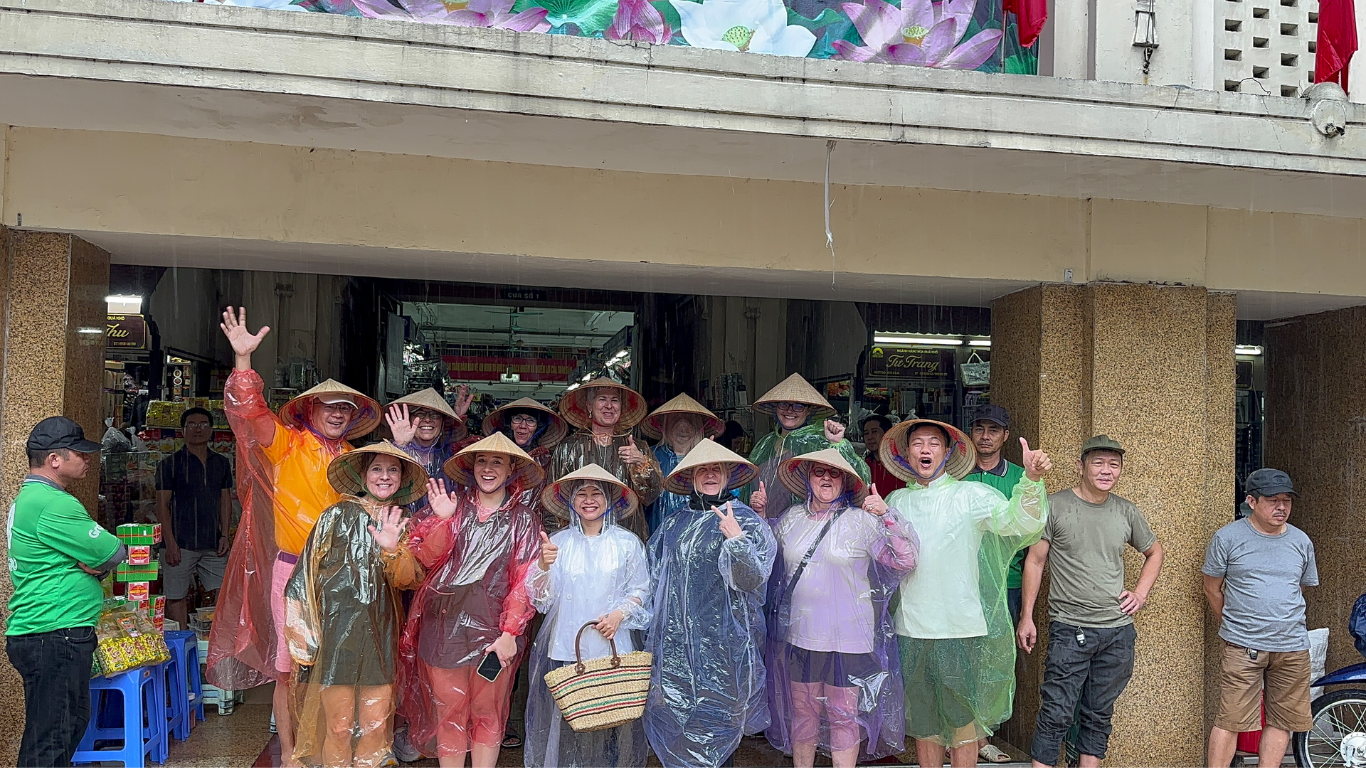The Profound Dual Purpose of Travel: Lost and Found
Rumblings trip to Vietnam: Phot is Dong Xuan market in Hanoi
Traveling goes far beyond exploring new landscapes and experiencing different cultures; it’s a journey of self-discovery and transformation. In the words of George Santayana, travel is both a means to lose and find ourselves. Beyond the familiar narrative presented in newspapers and media, travel offers a unique perspective that sharpens our awareness, challenges our assumptions, and enriches our understanding of the world.
Travel offers the opportunity, joy, and deep, heartfelt interactions that create a connection between people that isn’t bound by politics, culture, or language barriers. It deepens our understanding of the world around us by creating an awareness that our most profound humanity is linked to the humanity of others. It allows us to see the friendliness, hospitality, generosity, gentleness, caring, and compassion in others and ourselves. Travel creates a powerful understanding of our interconnectedness with one another. It enables us to see past differences intended to separate and alienate us and develops an understanding of belonging. We can acknowledge that we differ precisely because of our need for one another.
The profound impact of travel can open our hearts and minds and help us understand its role in fostering empathy and cultural exchange. As travelers, we bridge the gap between our identity and the world’s diverse cultures, offering a fresh perspective in an increasingly interconnected world society.
These are the reasons why we look forward to traveling with other women, to share these experiences, and deepen our connection to other women across the globe as well as create lasting friendships with each other. Especially during midlife, it’s an integral part of the journey of self-discovery that leaves an indelible mark on our lives when many women are searching for their vision, purpose, and identity for the re-igniting of this next critical phase of their lives.
Travel serves a dual purpose: it allows us to lose and find ourselves. It opens our hearts and minds to the world beyond what our newspapers convey. We travel to discover and share the riches of different cultures, to become young fools again, and to embrace the moral holiday of taking risks. Travel compels us to work desperately for a moment, to confront hardships, and to sharpen the edge of life, as George Santayana suggested in "The Philosophy of Travel."
Travel not only shows us different realities but also reveals our complexities. It encourages us to reexamine our beliefs and certainties, to see the world with new eyes, and to challenge our assumptions. Even familiar things, like a fast-food restaurant or a movie theater in a foreign land, can be a source of novelty and revelation.
Travelers understand that the world is full of wonder and hardship, and they embrace both. They bear witness to the moral and political urgencies of the places they visit, ensuring that these locations are not reduced to abstract ideas or ideologies. Travel becomes a way to rescue the humanity of places from abstraction and to save them from being mere curiosities.
Moreover, travelers are like human bridges, transporting values, beliefs, and news to the places they visit. In some parts of the world, they serve as the only contact with the outside world, offering a glimpse into other cultures and societies. Travel is about fostering understanding and empathy, importing and exporting dreams with tenderness.
As the world becomes more interconnected, people are increasingly transnational and multicultural. Travelers find themselves at the intersection of different cultures, languages, and customs, and they adapt quickly to new environments. This adaptability allows them to see the world with a fresh perspective.
Travel is also a journey into one's imagination, a quest to uncover the unknown, and a way to be carried out of one's comfort zone. It challenges our notions of home and identity and gives us a unique opportunity to bring new eyes to the places we visit and learn about ourselves.
Ultimately, travel is a heightened state of awareness, a wakefulness that keeps our minds nimble prejudices at bay and fosters humor. Like love, the best trips are never truly over because they leave a lasting impact on our minds and hearts, forever transforming our perception of the world.
You can read more about some of our travel experiences in our blogs about our trip to Vietnam and how to navigate multigenerational travel. To learn more about traveling with a group of women, join our list to get notified of upcoming trips. We also keep a journal documenting our travel experiences, and you can find one we created here.

